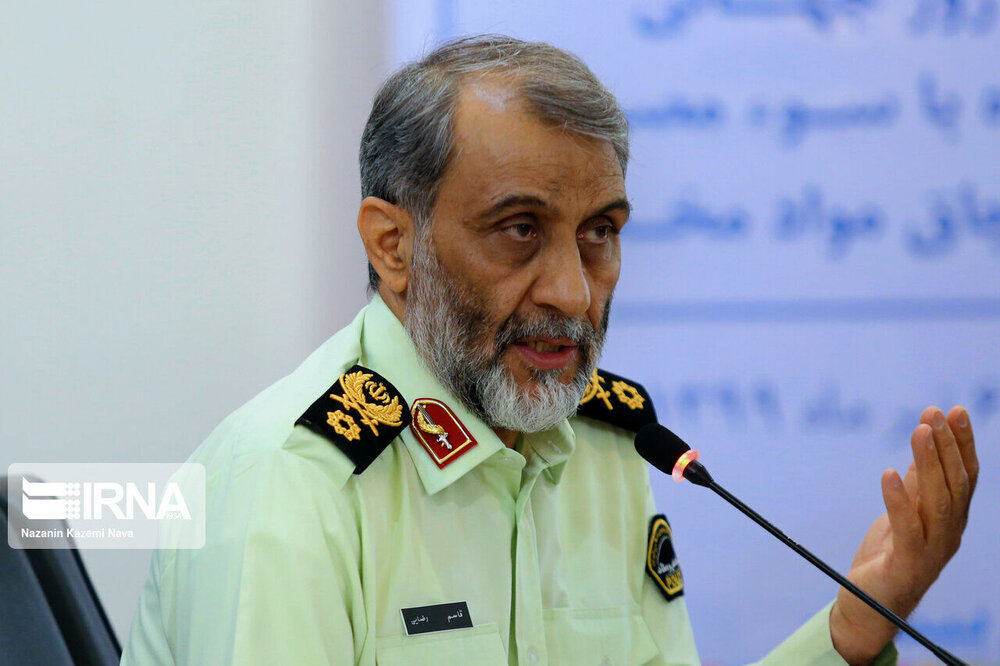‘Afghan rulers must be held accountable for drug trafficking’

TEHRAN – Given the withdrawal of Europeans from Afghanistan, the rulers must be held accountable for smuggling and transit of narcotics under border agreements, Qassem Rezaei, deputy commander of the Police Force, has said.
What is expected of the ruling authorities in Afghanistan is to control the borders and to be responsible for unauthorized traffic, he added.
Also be responsible for insecurity and anything that happens on the eastern borders, because according to border treaties and agreements are obliged to be accountable to Iranian border guards, although our border guards are fully prepared and if necessary, we use the forces of other organizations in this regard, Rezaei highlighted.
Despite the coronavirus restrictions and harsh sanctions, Iran managed to seize an unprecedented record of more than 1140 tons of narcotics in 2020. With the departure of Westerners from Afghanistan, the transit of narcotics was somewhat restricted, but last week more than three tons of narcotics were discovered on the eastern borders, indicating that the transit of narcotics was not controlled across the border, he lamented.
Afghanistan’s control over drug transit is our serious expectation, he noted, highlighting, some 200 tons of narcotics were produced in Afghanistan before the presence of Europeans, now it has reached over 8,000 tons, which is at least 40 times more.
Despite the coronavirus restrictions and the imposition of harsh sanctions, Iran, with sincere efforts, managed to seize an unprecedented record of more than 1140 tons of narcotics in 2020, which compared to 2019, shows a 41 percent increase in discoveries.
Iran forerunner in fight against narcotics
Iran is the leading country in the fight against narcotics worldwide; despite its proximity to Afghanistan, which is the largest producer of narcotics.
According to the UN Office, the Islamic Republic's continuous efforts to combat narcotics trafficking came up with the seizure of more than 90 percent of opium, 70 percent of morphine, and 20 percent of world heroin.
Despite the conditions caused by the coronavirus outbreak and the imposition of harsh sanctions against the country, fortunately, with the efforts of anti-narcotics police in 2020, drug detection increased by 41 percent.
After the Islamic Revolution (in 1979), 3,800 were martyred, 12,000 were wounded and disabled in the fight against drug trafficking.
The UNODC has praised Iran’s efforts to fight against narcotics trafficking on the occasion of International Day Against Drug Abuse and Illicit Trafficking.
The organization also officially announced that the world’s first place in the discovery of opium, heroin, and morphine belongs to Iran.
According to UNODC, Iran remains one of the major transit routes for drug trafficking from Afghanistan to European countries and has had a leading role at the global level in drug-control campaigns.
UNODC World Drug Report 2020 estimates that in 2018, 91 percent of world opium, 48 percent of the world morphine, and 26 percent of the world heroin were seized by Iran.
FB/MG
